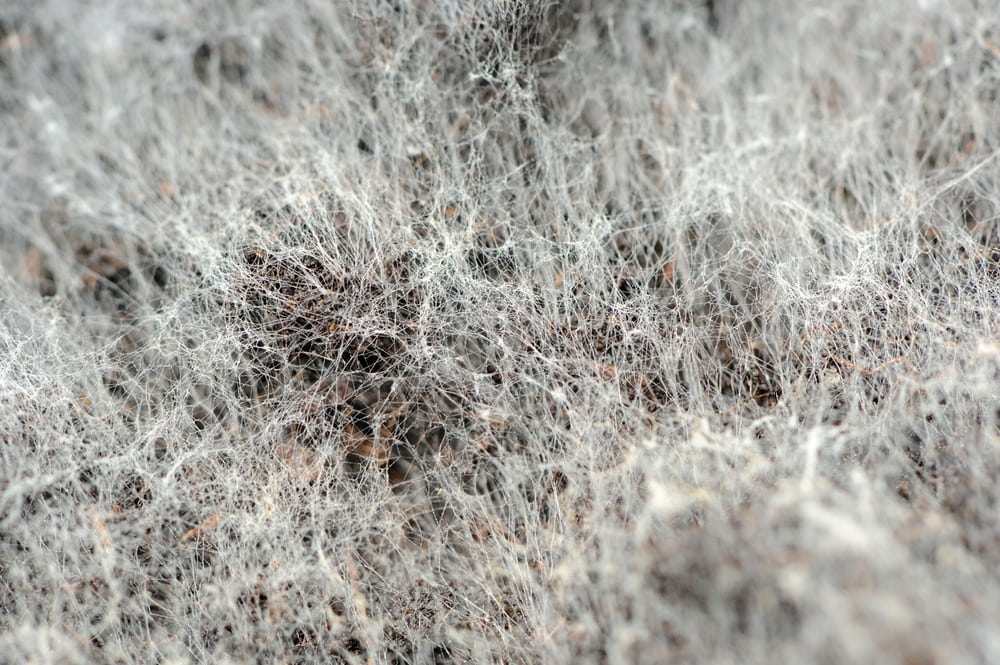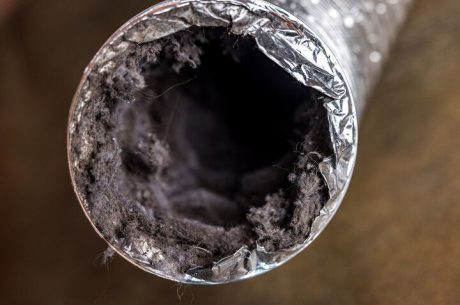Do you have concerns of mold growing in your home or business that are irritating sinuses and leading to worsening health problems?
Unfortunately, Houstonians know a lot about mold and its impact. But did you know there are different types of mold – some worse than others?
From hurricane season and year-round floods, when the waters rise into homes and businesses, mold remediation is a must-have service in the Lone Star state. Moreover, the nearly constant high humidity levels in the Houston area provide an ideal breeding ground for mold to grow and spread.
To help you better preserve your property and health from the common types of mold in Houston, TX, here is what you need to know about mold and how to mitigate it.
What You Need To Know About Mold In The Greater Houston Area
Houston’s proximity to the Gulf Coast and all-around humid environment means residents and business owners need to stay on top of mold mitigation. However, with the right (or wrong) weather conditions or faulty pipes, the tasks to prevent mold may not be enough. When this occurs, it’s best to get a professional on the line and ensure your property is safe and mold free.
Ready to finally mitigate your mold situation for good? Contact the specialists at PuroClean of Northeast Houston-Beltway.
1. Mildew
Did you know that mildew is in fact mold in its early stage?
Dark, damp spaces like basements and crawl spaces create the perfect environment for both mildew and mold to grow. However, mildew can quickly spread across other areas of your home or business. In fact, any damp surface can form mildew within 24 hours. The spores can then quickly begin traveling through the air, irritating allergies and possibly leading to more serious health complications.
To keep your home or business free of mildew and mold, start with keeping things clean and tidy. Regularly vacuum carpets and upholstery. If upholstered furniture has mildew, it is likely inside the furniture as well. You can place these items outside in the sunshine to help kill off the mildew.
Use a solution of either bleach or ammonia with hot water to wipe other surfaces clean. However, you should soak fabrics in bleach and hot water to sanitize deeply-imbedded mildew spores. Remove and throw away any materials from your property that are too far gone from mildew exposure.
Furthermore, if gone unchecked, mildew and mold can spread throughout your entire property. Those with health problems or an inability to rectify the situation should call a mold specialist, like PuroClean, to remediate the situation and mitigate further risk.
2. Cladosporium
For asthma sufferers, Cladosporium is the type of mold they may feel like they can’t escape. It grows both indoors and outdoors, thriving in damp areas.
While it doesn’t affect all people, its presence can trigger anyone who is sensitive to mold or who has asthma. Due to Houston’s high humidity, any occurrence of moisture within a home can quickly become home to this type of mold. The health symptoms of Cladosporium include:
- Tightness in chest
- Difficulty breathing
- Dry skin
- Stuffy or runny nose
- Sneezing
- Coughing
- Itchy eyes, nose, and throat
- Watery eyes
It’s common to find Cladosporium on wooden surfaces, painted surfaces, carpets, fabrics, wallpaper, air registers, HVAC vent covers, and filter grills. If left undisturbed, the mold continues to grow and spread throughout buildings.
To mitigate Cladosporium, you first need a professional to inspect and identify the mold to know what you’re dealing with. Then, along with your mold mitigation professional, you need to identify the source.
Once a professional identifies the mold and source, the first step is to remove the cause. This can be as simple as fixing a leak or properly sealing an area. This can be as simple as fixing a leak or properly sealing an area. Finally, you’ll need to remove any contaminated materials from your home if they can’t be effectively cleaned of the mold.
3. Penicillium
The name of this mold may sound familiar. And that is for good reason! The antibiotic penicillin derives from Penicillium – along with blue cheeses, fermented salamis, certain pigments, and more.
However, these applications of the mold are in a controlled environment. When found growing in your home, it poses a serious risk that you should mitigate immediately.
You can typically find Penicillium growing on decaying plants, in the soil of houseplants, rotting fruits, and on leather materials. Once it finds its way into your home, it can spread to painted surfaces, wallpaper, carpets, and any moist areas.
This mold can cause allergic reactions and infections in people with compromised or weak immune systems. Some species of the mold even produce mycotoxins, which are carcinogens. So it is important to remove any affected materials from your home as soon as it is identified.
Unfortunately, Penicillium can grow in low moisture. This means that it’s important to work with a mold remediation professional to identify and remove the mold as soon as possible. You can do your own part by making sure your home is well-ventilated and using a dehumidifier. Also, make sure to toss any spoiled foods quickly to keep the mold from growing in your home.
Worried about mold in your home in the Greater Houston area? Contact PuroClean of Northeast Houston-Beltway.
4. Stachybotrys Chartarum
If your home or business has suffered water damage, you may be at risk of Stachybotrys Chartarum. Certain varieties are the species of infamous black mold that can cause serious health conditions.
According to the CDC, this mold may be associated with acute pulmonary hemorrhage among infants. While there is a need for further studies, the CDC encourages parents to ensure their homes are free of mold and seek medical treatment if their children present symptoms.
Also known as Stachybotrys Atra, this mold has a greenish-black color that thrives in moisture. Because this mold typically forms inside walls prior to spreading to drywall and other surfaces, it requires more than just a deep cleaning. Plus, once the mold spores are disturbed, they can quickly distribute through the air.
If you believe you have any type of Stachybotrys Chartarum in your home, contact a professional to identify and effectively remediate the contamination.
5. Aspergillus
Most healthy people don’t feel the effects of Aspergillus as their immune systems are strong enough to handle the mold. However, those with compromised immune systems, cystic fibrosis, asthma, and/or lung disease may develop aspergillosis.
The range of aspergillosis can be particularly harmful to stem cell and organ transplant recipients, those going through chemotherapy, or on a high dose of certain steroids.
Aspergillus is typically found in HVAC systems, hay, and compost piles. It is most active in the fall and winter months when Houston’s rainy season lacks the warmth to dry quickly. If it is found in your home, it is likely a sign of poor indoor air quality and excessive moisture.
Minor instances of Aspergillus can be mitigated with increased airflow, a dehumidifier, and a non-toxic registered fungicide. However, there is a risk of releasing fresh spores if you take on the task alone. On this note, it is best to work with a professional mold remediation specialist to remove Aspergillus, especially if the affected area covers more than a couple feet of space.
PuroClean Of Northeast Houston-Beltway Is Your Partner In Mold Mitigation & Remediation
Whether flood waters make their way into your home or business or an existing damp situation creates an ideal breeding ground, you need to remediate mold for your health and well-being.
In addition to mold remediation, our services include water damage restoration, smoke and fire restoration, biohazard cleanup, upholstery and carpet cleaning, tile and grout cleaning, and remediation for large-scale property damage.
When you need our help, PuroClean of Northeast Houston-Beltway is here for you. Our services are offered 24/7/365 because we know emergencies don’t keep office hours. You can expect an immediate response and have confidence in your property and health.
Visit our website to learn more and give us a call at (713) 250-8800 with questions or to schedule an appointment.



 PuroClean of Northeast Houston – Beltway
PuroClean of Northeast Houston – Beltway